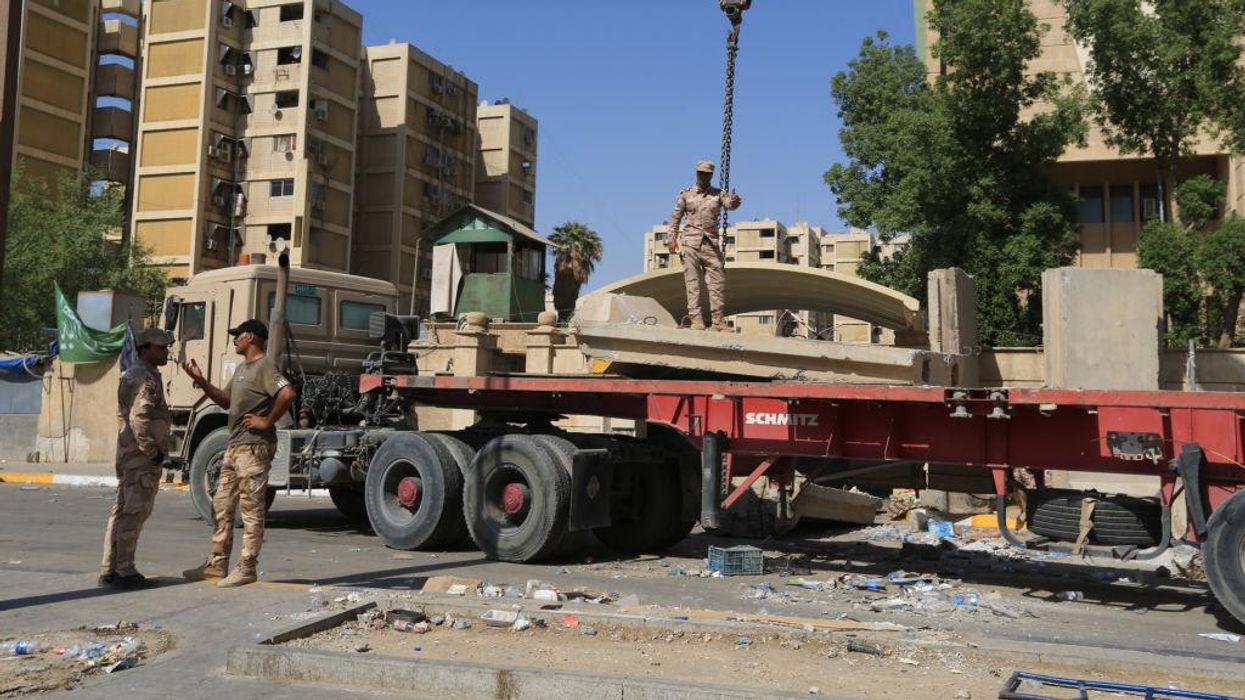
Murtadha Al-Sudani/Anadolu Agency via Getty Images

Prominent Iraqi Shiite leader Muqtada al-Sadr pleaded with his supporters to go home after violence erupted following his announcement that he was leaving politics.
The New York Times reports that an Iraqi Health Ministry official said at least 24 people had been killed and more than 190 injured since Sadr’s supporters entered Baghdad’s Green Zone, which has been the focal point of the violence.
Sadr appeared at a news conference on Tuesday and called on his supporters to withdraw immediately from the Green Zone. Sadr also apologized for the actions of his supporters.
“Regardless of who started the sedition yesterday,” Sadr said, referring to the violent clashes, “I say that my head is down and I apologize to the Iraqi people.”
Sadr’s followers heeded his call, according to the Associated Press, leaving the streets Tuesday and “restoring a measure of calm after a serious escalation of the nation’s political crisis.” Iraq’s military also announced the lifting of its nationwide curfew.
The abrupt end to the violence underscore Sadr’s continued influence over his significant number of supporters. “What happened demonstrated his ability to mobilize and mobilize with the click of a finger,” said Fanar Haddad, an Iraq expert at the University of Copenhagen. “He has shown the ability to bring down and save the entire edifice.”
“We had hoped that there would be peaceful protests, not weapons. A revolution marred by violence and murder is not a revolution,” Sadr said.
Sadr holds no formal political office but is one of the most powerful political figures in Iraq. His father and uncle were highly revered senior religious scholars.
The clashes were largely between Iran-backed paramilitary units that are part of Iraqi government security forces and armed members of Sadr’s paramilitary organization, explains the New York Times. "The government is powerless to stop this, because the military is divided into (Iran) loyalists and Sadrists as well," an anonymous Iraqi official said.
John Kirby, the coordinator for strategic communications at the U.S. National Security Council, called reports of the turmoil “disturbing” and expressed concern that “Iraqi institutions are not being allowed to function,” reports The Hill.
Kirby added that reports of the U.S. embassy being under threat are “false.”